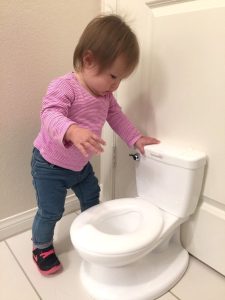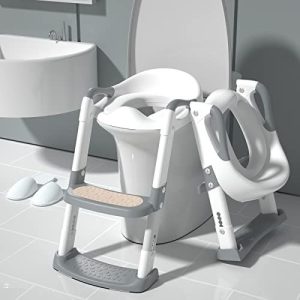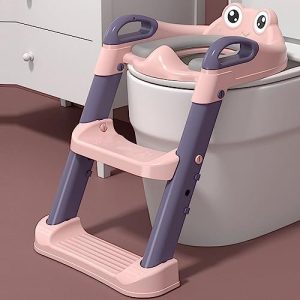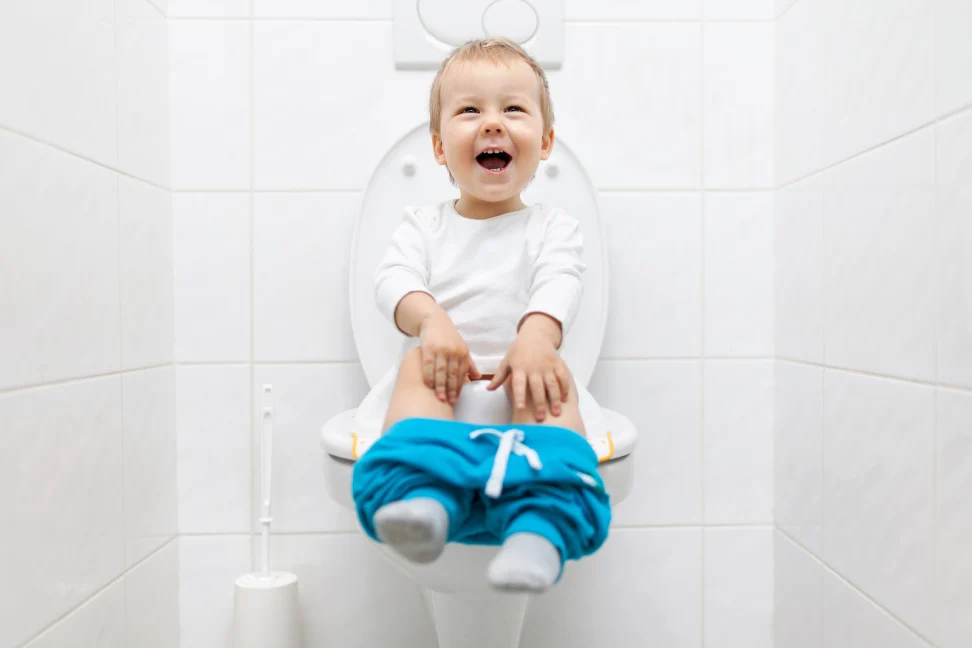Potty training is a milestone for both toddlers and parents. It’s a time of great learning and growth, but it can also be a frustrating journey. One common hurdle is potty training resistance. Here’s a guide to understanding and overcoming resistance.
Why Do Toddlers Resist Potty Training?
There are many reasons why toddlers might resist using the potty. Here are some common ones:
- Fear of the unknown: The toilet can seem big and scary to a little one.
- Loss of control: Potty training can feel like a loss of control for toddlers who are used to diapers.
- Developmental stage: Some toddlers simply aren’t physically or mentally ready for potty training yet.
- Attention-seeking: Accidents can be a way for toddlers to get attention, even if it’s negative attention.
Signs of Potty Training Resistance
Here are some signs that your toddler might be resisting potty training:
Hiding when it’s potty time:
Does your toddler run away or cry when you suggest using the potty?
Holding it in:
Is your toddler holding their pee or poop for long periods of time?
Accidents after progress:
Has your toddler been having accidents after showing some success with potty training?
Verbal resistance:
Does your toddler say no or throw tantrums when it’s potty time?

Tips for Overcoming Resistance
If your toddler is resisting potty training, here are some tips to help:
- Take a break: Sometimes, the best thing to do is take a step back and wait a few weeks. Try again when your toddler seems more receptive.
- Make it fun: Use colorful potty chairs, sticker charts, or sing potty songs to make potty time more enjoyable.
- Positive reinforcement: Praise your toddler for using the potty, even for small successes like sitting on it or telling you they need to go.
- Focus on the experience: Make potty time a positive experience, not a stressful one. Read books, sing songs, or chat with your toddler while they’re on the potty.
- Avoid pressure: Don’t force your toddler to use the potty. This can make them more resistant.
Creating a Potty-Friendly Environment
Here are some ways to create a potty-friendly environment for your toddler:
- Let them choose: Involve your toddler in choosing a potty chair or training pants with a fun design.
- Potty in the bathroom: Let your toddler see you using the potty. Talk openly about what you’re doing in a way they can understand.
- Accessible potty: Make sure the potty chair is easy for your toddler to get on and off by themselves. This gives them a sense of control.
- Practice makes perfect: Let your toddler practice sitting on the potty, even if they don’t go at first.
Potty training is a journey, not a race. Every toddler learns at their own pace. Be patient, celebrate successes, and focus on making potty training a positive experience.

Addressing Accidents
Accidents are inevitable during potty training, especially during resistance. Here are some tips for handling them:
- Stay calm: Avoid getting angry or frustrated. Accidents happen!
- Clean up together: Make cleaning up an opportunity to talk about using the potty in a positive way.
- Offer reassurance: Let your toddler know it’s okay and accidents happen to everyone.
- Refocus on potty time: Use accidents as a teaching moment to remind your toddler about using the potty.
Potty Training Regression
Sometimes, toddlers who have already shown some potty training success might regress. This is normal and doesn’t necessarily mean you’re doing something wrong. Here are some possible reasons for regression:
- Stressful event: A new sibling, moving house, or other life changes can cause stress, leading to regression.
- Medical issue: Occasionally, regression can be a sign of a urinary tract infection or other medical condition. Talk to your doctor if you’re concerned.
- Attention-seeking: Regression can be a way for toddlers to get attention, even if it’s negative attention.

Tips for Regression
If your toddler is regressing, here are some tips:
- Identify the cause: Try to figure out what might be causing the regression.
- Be patient: Regression is temporary. Stick to your potty training routine and offer reassurance.
- Positive reinforcement: Continue to praise your toddler for potty successes, no matter how small.
- Talk to your doctor: If you’re concerned about your toddler’s regression, talk to your doctor.
Potty training is a journey with ups and downs. Be patient with your toddler and celebrate their successes. If you find yourself getting frustrated, take a break and come back to it later. There are many resources available to help you along the way.
The Role of Consistency
Consistency is key during potty training, especially when dealing with resistance. Here’s how to create a consistent routine:
- Scheduled potty breaks: Take your toddler to the potty at regular intervals, even if they don’t always go. This helps them get used to the routine.
- Before and after: Offer potty breaks before and after nap time, bedtime, meals, and car rides.
- Positive reinforcement chart: Use a sticker chart or reward system to celebrate potty successes. Be consistent with the rewards offered.
- Positive communication: Use positive language when talking about potty training. Avoid phrases like “accidents” and focus on “potty time.”
Potty Training Tools
There are many potty training tools available that can help make the process more fun and engaging for toddlers. Here are a few ideas:
- Potty chair: Choose a sturdy and comfortable potty chair that’s the right size for your toddler. Look for fun designs or features like a built-in sound system.
- Training pants: Training pants are not diapers, but they offer more absorbency than underwear. They can be a helpful tool during potty training transitions.
- Books and apps: Many age-appropriate books and apps can introduce potty training concepts in a fun and engaging way. Look for resources that use positive reinforcement.
Building Confidence
Potty training can be a confidence booster for toddlers. Here are some ways to build their confidence during this process:
- Focus on effort: Praise your toddler for trying to use the potty, even if they don’t go. This helps them feel good about the process.
- Celebrate small wins: Acknowledge and celebrate every step forward, no matter how small. This keeps your toddler motivated.
- Offer choices: Give your toddler choices whenever possible. Let them pick out their potty chair or training pants. This empowers them and gives them a sense of control.
- Positive self-talk: Use positive language when talking about your toddler’s potty training journey. Avoid phrases like “failure” and focus on “learning.”







